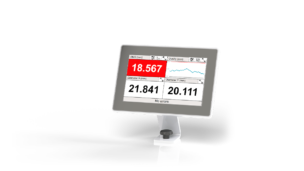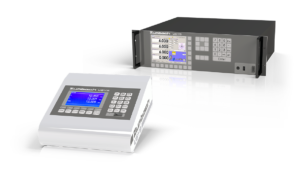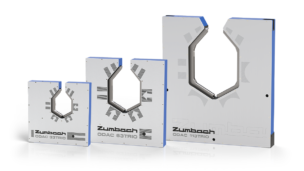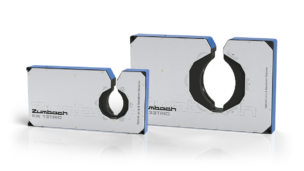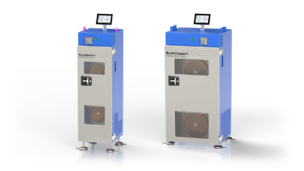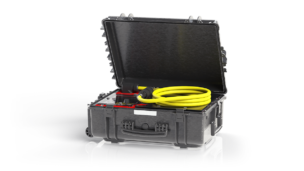




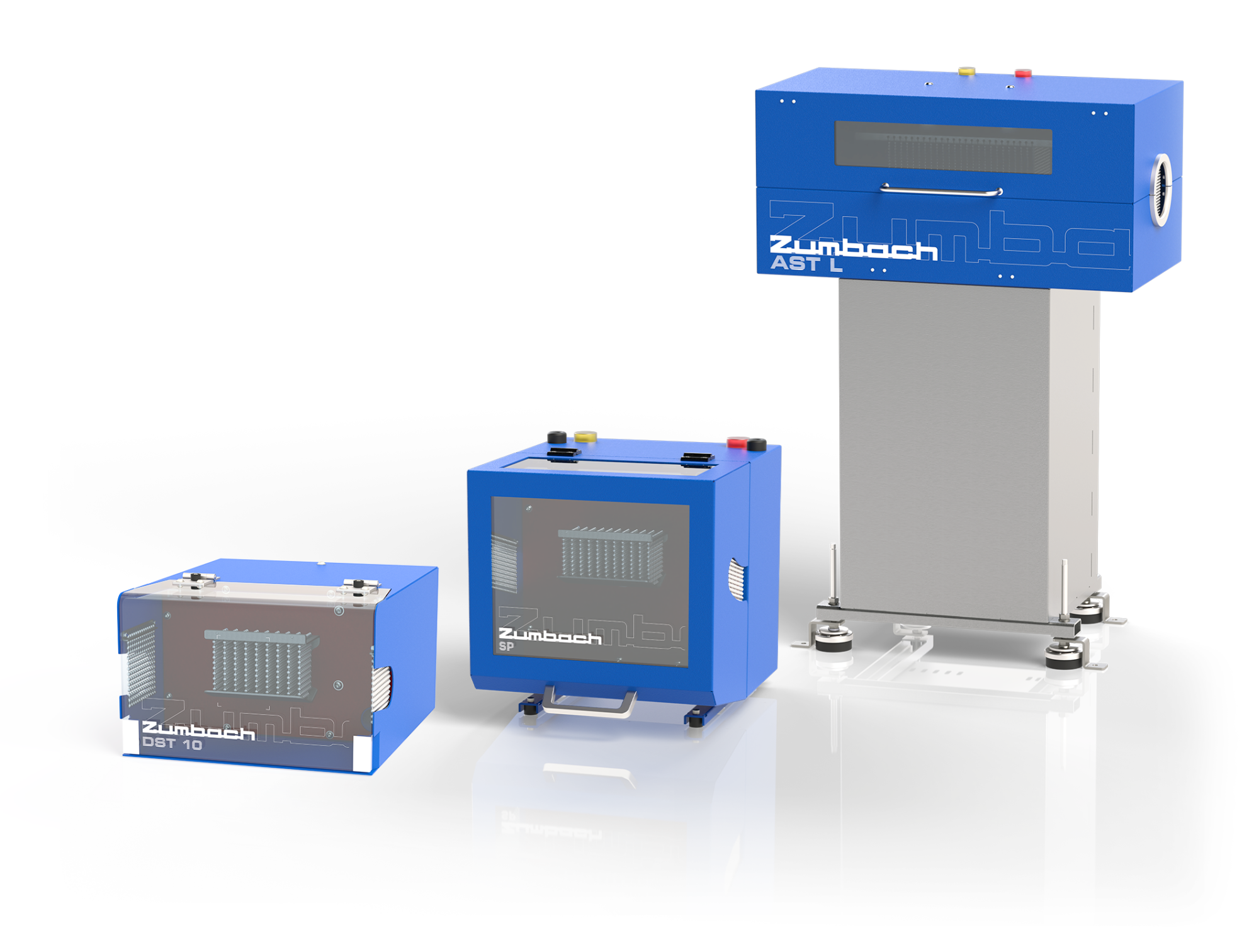
AST / DST
Sparktester for insulation testing on cables in insulating and sheathing lines
Properties
- Testing with sinusoidal alternating voltage and mains frequency or low frequency
- Bare patch and pinhole detection
- Electrodes for product diameters up to 250 mm
- Models with up to 40 kV AC or 28 kV DC available
- Compliance with the UL 1581, UL 2556 and IEC 62230 standards
- Integrated web server in all processor versions
- Integrated standard bus communication, including Profibus DP, Profinet IO, Ethernet IP and others
Benefits
- Very robust and durable design
- Extremely dirt resistant
- Comprehensive quality control
- High operational reliability even under harsh conditions
- Compact and hard-wearing solutions

Object diameter (mm)

Test voltage (kV)

Line speed (m/min

Scan rate (kHz)
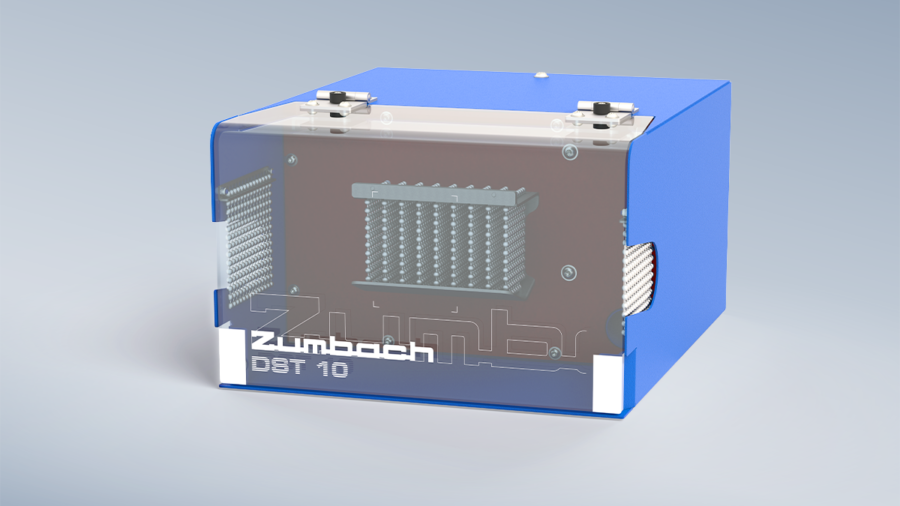
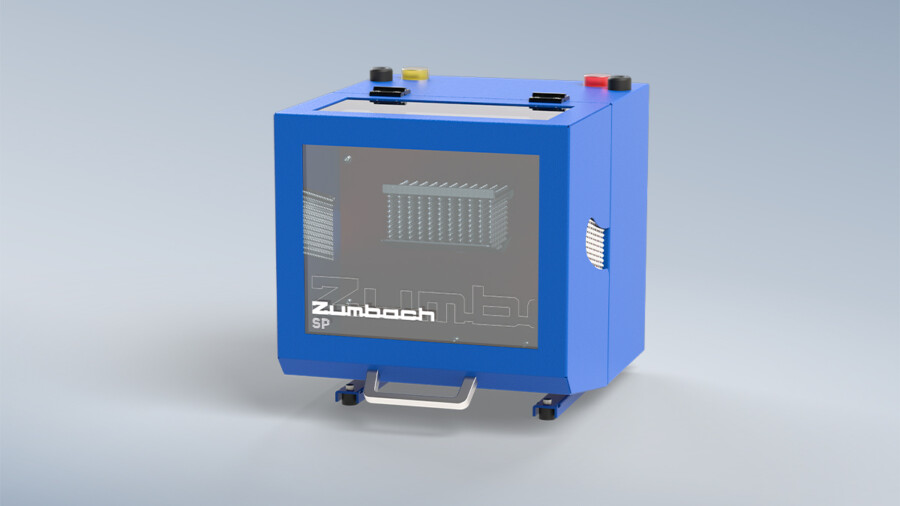
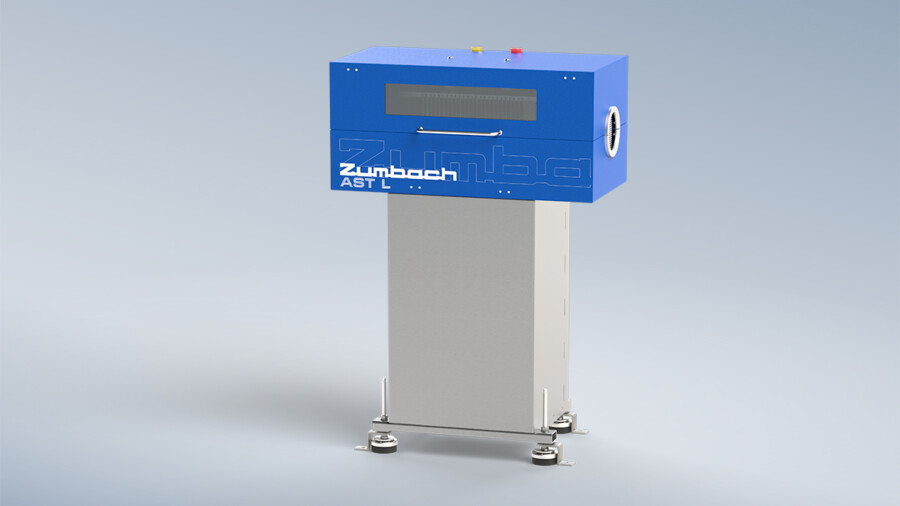
Technical data
For accessories and detailed product information, refer to the respective brochures
AST H 15A
- Object diameter
- ø 30 mm bead chain electrodes, 40/125 mm lengths
- Test voltage
- 0.5 … 15 kV AC
- Scan rate
- 3 kHz
- Line speed
- Till 7’500 m/min IEC / 2’084 m/min UL
- Brochure
- AST H 15A (PDF, 1.55 MB)
AST L
- Object diameter
- Bead chain electrodes: ø 50/90/250 mm, 200/300/400/1000 mm lengths
- Test voltage
- 2 … 40 kV AC
- Scan rate
- 50-120 Hz
- Line speed
- Up to 1’200 m/min IEC / 333 m/min UL
- Brochure
- AST L (PDF, 1.55 MB)
DST 10
- Object diameter
- Bead chain electrodes: 30 mm, 102 mm lengths, flat electrode: 30×30 mm
- Test voltage
- 0.5 … 10 kV DC
- Scan rate
- NA
- Line speed
- Up to 6,120 m/min IEC / 3,019 m/min UL
- Brochure
- DST 10 (PDF, 495.68 KB)
DST 28A
- Object diameter
- ø 30 mm with bead chain electrodes, ø 40 mm or 20…75 mm with ring electrodes, 60×30 mm or 150×30 mm with flat electrodes
- Test voltage
- 1 … 28 kV DC
- Scan rate
- NA
- Line speed
- Up to 7,500 m/min IEC / 3,700 m/min UL
- Brochure
- DST 28A (PDF, 1.55 MB)
Areas of application
Typically, Sparktesters are installed at the end of the cooling section in extrusion lines or rewinding systems. They detect even the smallest faults and bare patches in the insulation or sheathing of electric cables.
The model is also used in cable extrusion procedures, for example:
- Cable insulation
- Tube inspection
- Cable stranding
- Bundling of cables
